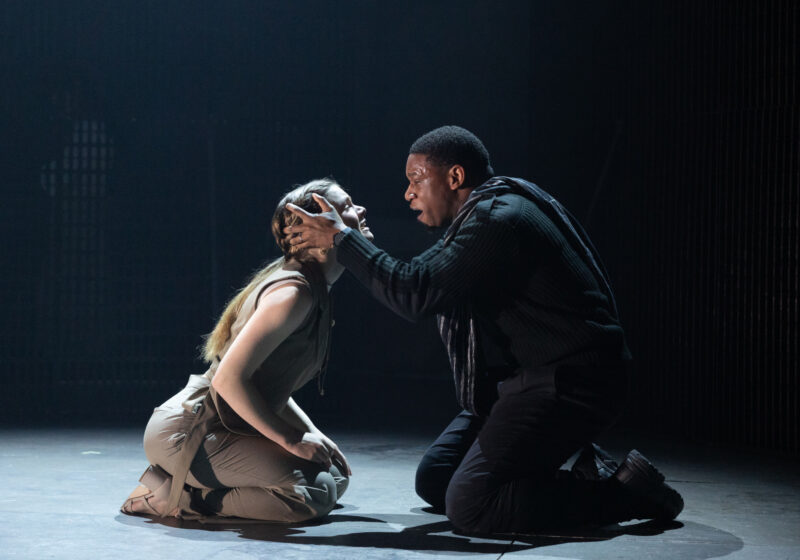Last week, mounting concerns surrounding the UR Security Department led members of the Security Officers Association to a vote of no confidence in the University’s Manager of Security Services, Walter Mauldin.
According to Senior Vice President of Administration and Finance Ronald Paprocki, the vote will not affect Mauldin’s position, but it does call attention to a growing issue within the UR Security Department.
“This is a signal of concern about training and equipment, rather than a focus on an individual,” Paprocki said.
Paprocki stressed that the University maintains complete faith in Mauldin, claiming that he is a professional running a first-class Security department. Nevertheless, violent incidents have recently been on the rise on campus, as stressed by members of the Security Officers Association in a press release. The officers cite a three-day span in May — in which UR students were victims in incidents of home invasion, beating, and robbery — as an example.
The spark that lit the flame, however, came on Sept. 11, when fighting broke out at a party held in Douglass Dining Center. The incident resulted in three Security Officers being transported to Strong Memorial Hospital with relatively serious injuries.
The press release cites poor and unsafe decisions by management as the cause of these injuries. According to the head of the UR Security Officers Association Dan Schermerhorn, improved training and equipment would prevent such incidents from occurring in the future.
More specifically, Schermerhorn said that the officers want to have all the training and equipment of any other police officer.
Presumably, this would mean that Security officers would be able to carry the same weapons as a police officer on campus for use in self-defense.
“Unless we can protect ourselves, we cannot protect the campus,” Schermerhorn said in the press release.
According to Schermerhorn, the Security Officers Association had brought up these concerns well before the vote of no confidence took place.
“The members [of the association] felt that they went through all the right channels, both with the University and within the association,” he said. “[Many felt that] their concerns were taken into consideration, so to speak, but no resolution ever came.”
“We did look at these issues a couple of years ago,” Paprocki said. “I think that times and circumstances can change, and it’s always good to look at these issues again from time to time, and that’s what we’ll be doing.”
Paprocki also contended, however, that UR Security officers already go through an extensive 400-hour training program.
Additionally, according to Paprocki, many UR Security officers go on to become successful members of other law-enforcement agencies.
“Just by dealing with them, you can see that we have a very professional force,” he said.
Moreover, Paprocki stressed that incidents in which serious injuries become a real possibility, such as the brawl at Douglass Dining Hall, are very rare at UR, saying that he could not remember another incident rivaling it in his tenure at the University.
UR students are generally torn on the issue, with no clear consensus as to whether they want Security officers to be armed or not.
“I think I would feel safer, as long as they knew how to use [weapons] and who to use them against,” senior Elizabeth Subjeck said.
Sophomore Cole Cruz, on the other hand, expressed concerns about the effectiveness of an armed campus Security force.
“I wouldn’t feel safer because I don’t think most of our issues are violence-oriented, so I don’t think it’s necessary [for Security to be armed],” he said.
Looking ahead, both parties are beginning to meet with one another in an effort to reach a compromise.
Paprocki and Schermerhorn have already had one meeting, and another is scheduled for next week, with more members of the Security Officers Association planning to be in attendance.
“Our intentions are to work with the University to come up with a training program that helps us best do our jobs,” Schermerhorn said.
Paprocki echoed the importance of cooperation in resolving the issue, and emphasized that he wants to better understand exactly what the Security officers are looking for.
“I’m in the listening mode right now, and that’s part of what I want to understand,” he said.
Paprocki also made it known that the issue is very complex and involves many viewpoints, so what direction the situation will take is not yet clear. Still, he hopes that through meeting with the officers, the issue will be resolved quickly.
Although much communication still needs to take place, Paprocki and Schermerhorn are in agreement with regard to one aspect of the situation — the status of the Security Department until all this is resolved.
“We’re all on the same page with respect to continuing to function normally within the department,” he said.
Fleming is a member of
the class of 2013.




